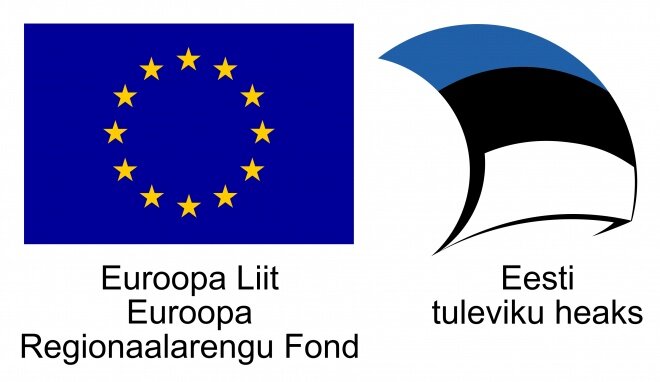-
Humanitaarteaduste ja kunstide valdkondJakobi 2, r 116-121 51005 Tartu linn, Tartu linn, Tartumaa ESTJakobi 2 51005 Tartu linn, Tartu linn, Tartumaa ESTJakobi 2, IV korrus 51005 Tartu linn, Tartu linn, Tartumaa ESTJakobi 2, III korrus, ruumid 302-337 51005 Tartu linn, Tartu linn, Tartumaa ESTÜlikooli 16 51003 Tartu linn, Tartu linn, Tartumaa ESTLossi 3 51003 Tartu linn, Tartu linn, Tartumaa ESTÜlikooli 18 50090 Tartu linn, Tartu linn, Tartumaa ESTPosti 1 71004 Viljandi linn, Viljandimaa ESTJakobi 2 51005 Tartu linn, Tartu linn, Tartumaa ESTJakobi 2 51005 Tartu linn, Tartu linn, Tartumaa ESTSotsiaalteaduste valdkondLossi 36 51003 Tartu linn, Tartu linn, Tartumaa ESTJakobi 5 51005 Tartu linn, Tartu linn, Tartumaa ESTLossi 36, ruum 301 51003 Tartu linn, Tartu linn, Tartumaa ESTNarva mnt 18 51009 Tartu linn, Tartu linn, Tartumaa ESTNäituse 2 50409 Tartu linn, Tartu linn, Tartumaa ESTNäituse 20 - 324 50409 Tartu linn, Tartu linn, Tartumaa ESTLossi 36 51003 Tartu linn, Tartu linn, Tartumaa ESTRaekoja plats 2 20307 Narva linn, Ida-Virumaa ESTRingi 35 80012 Pärnu linn, Pärnu linn, Pärnumaa ESTLossi 36 51003 Tartu linn, Tartu linn, Tartumaa ESTLossi 36 51003 Tartu linn, Tartu linn, Tartumaa ESTMeditsiiniteaduste valdkondRavila 19 50411 Tartu linn, Tartu linn, Tartumaa ESTBiomeedikum, Ravila 19 50411 Tartu linn, Tartu linn, Tartumaa ESTNooruse 1 50411 Tartu linn, Tartu linn, Tartumaa ESTL. Puusepa 1a 50406 Tartu linn, Tartu linn, Tartumaa ESTL. Puusepa 8 50406 Tartu linn, Tartu linn, Tartumaa ESTRavila 19 50411 Tartu linn, Tartu linn, Tartumaa ESTUjula 4 51008 Tartu linn, Tartu linn, Tartumaa ESTRavila 50411 Tartu linn, Tartu linn, Tartumaa ESTRavila 19 50411 Tartu linn, Tartu linn, Tartumaa ESTLoodus- ja täppisteaduste valdkondVanemuise 46 - 208 51003 Tartu linn, Tartu linn, Tartumaa ESTNarva mnt 18 51009 Tartu linn, Tartu linn, Tartumaa ESTRiia 23b/2 51010 Tartu linn, Tartu linn, Tartumaa ESTMäealuse 14 12618 Tallinn, Harjumaa ESTRavila 14a 50411 Tartu linn, Tartu linn, Tartumaa ESTNarva mnt 18 51009 Tartu linn, Tartu linn, Tartumaa ESTRiia 23, 23b - 134 51010 Tartu linn, Tartu linn, Tartumaa ESTObservatooriumi 1 61602 Tõravere alevik, Nõo vald, Tartumaa ESTNooruse 1 50411 Tartu linn, Tartu linn, Tartumaa ESTJ. Liivi tn 2 50409 Tartu linn, Tartu linn, Tartumaa ESTVanemuise 46 51003 Tartu linn, Tartu linn, Tartumaa ESTVanemuise 46 51003 Tartu linn, Tartu linn, Tartumaa ESTNooruse 1 50411 Tartu linn, Tartu linn, Tartumaa ESTAkadeemilise sekretäri tegevusvaldkondLossi 3 51003 Tartu linn, Tartu linn, Tartumaa ESTUppsala 6, Lossi 36 51003 Tartu linn, Tartu linn, Tartumaa ESTFinantsjuhi tegevusvaldkondÜlikooli 17 51005 Tartu linn, Tartu linn, Tartumaa ESTJakobi 4 51005 Tartu linn, Tartu linn, Tartumaa ESTKantsleri tegevusvaldkondUppsala 10 51003 Tartu linn, Tartu linn, Tartumaa ESTÜlikooli 18A (III korrus) 51005 Tartu linn, Tartu linn, Tartumaa ESTÜlikooli 18, ruumid 102, 104, 209, 210 50090 Tartu linn, Tartu linn, Tartumaa ESTRektori tegevusvaldkondÜlikooli 18 50090 Tartu linn, Tartu linn, Tartumaa ESTÕppeprorektori tegevusvaldkondUppsala 10 51003 Tartu linn, Tartu linn, Tartumaa ESTÜlikooli 18b 51005 Tartu linn, Tartu linn, Tartumaa ESTLossi 36-401 51003 Tartu linn, Tartu linn, Tartumaa ESTTeadusprorektori tegevusvaldkondW. Struve 1 50091 Tartu linn, Tartu linn, Tartumaa ESTArendusprorektori tegevusvaldkondNarva mnt 18 51009 Tartu linn, Tartu linn, Tartumaa ESTVanemuise 46 51003 Tartu linn, Tartu linn, Tartumaa ESTLossi 25 51003 Tartu linn, Tartu linn, Tartumaa EST
Töötuba väärtushinnangute teemal
29. novembril toimub ühepäevane töötuba väärtushinnangute teemal, mis on seotud Francesco Orsi PUTiga "The Unity of Normative Discourse (2013-16)". Kõik huvilised on oodatud osalema, kaasarvatud iga õppeastme tudengid. Lisainfo saamiseks kirjutage Francesco Orsile: orsi [ät] ut.ee
Töötuba väärtushinnangutest
29. novmeber 2016
Jakobi 2 - 336
10:30 Wlodek Rabinowicz (Lund University) "Aggregation of Value Judgments Differs from Aggregation of Preferences"
12:00 Lõuna
13:00 Toni Rønnow-Rasmussen (Lund University) "On Conditionalism--On the Verge of a New Metaethical Theory"
14:30 Töötoa lõpp
Wlodek Rabinowicz: Aggregation of Value Judgments Differs from Aggregation of Preferences
Ettekande tutvustus
This talk will focus on the contrast between aggregation of individual preference rankings to a collective preference ranking and aggregation of individual value judgments to a collective value judgment. The targeted case is one in which value judgments also have the form of rankings. Despite of this formal similarity, the kind of aggregation procedure that works fine for judgments - minimization of distance from individual inputs - turns out to be inappropriate for preferences. Whatever measure of distance is chosen, distance-based procedures violate the strong Pareto condition. Which seems alright as value judgment aggregation goes, but would not be acceptable for preference aggregation, on the most natural interpretation of the latter task. Distance-based aggregation of value judgments might also be approached from the epistemic perspective: questions might be raised about its advantages as a truth-tracker. From this perspective, what matters is not only the probability of the output being true, but also the expected verisimilitude of the output, i.e. its expected distance from truth.
Toni Rønnow-Rasmussen: On Conditionalism—On the Verge of a New Metaethical Theory
Ettekande tutvustus
This presentation explores a novel metaethical theory according to which value judgements express a certain kind of cognitive conditional attitude, viz., a belief that something is the case on condition that something else is the case. The aim is to reach a better understanding of this view. To this end, this work highlights some challenges that lie ahead. Certainly the most pressing one is to reach an understanding of the nature of these cognitive attitudes. It is suggested that the distinction between “dormant attitude” and “occurrent attitude” help us better understand these conditional beliefs.
Töötoa läbiviimist on toetanud Euroopa Liidu Regionaalarengu Fond (Eesti-uuringute tippkeskus), ning see on seotud Eesti Haridus- ja Teadusministeeriumi uurimisprojektiga IUT20-5 ning Eesti Teadusagentuuri grantiga PUT243.

Loe veel sarnaseid uudiseid





